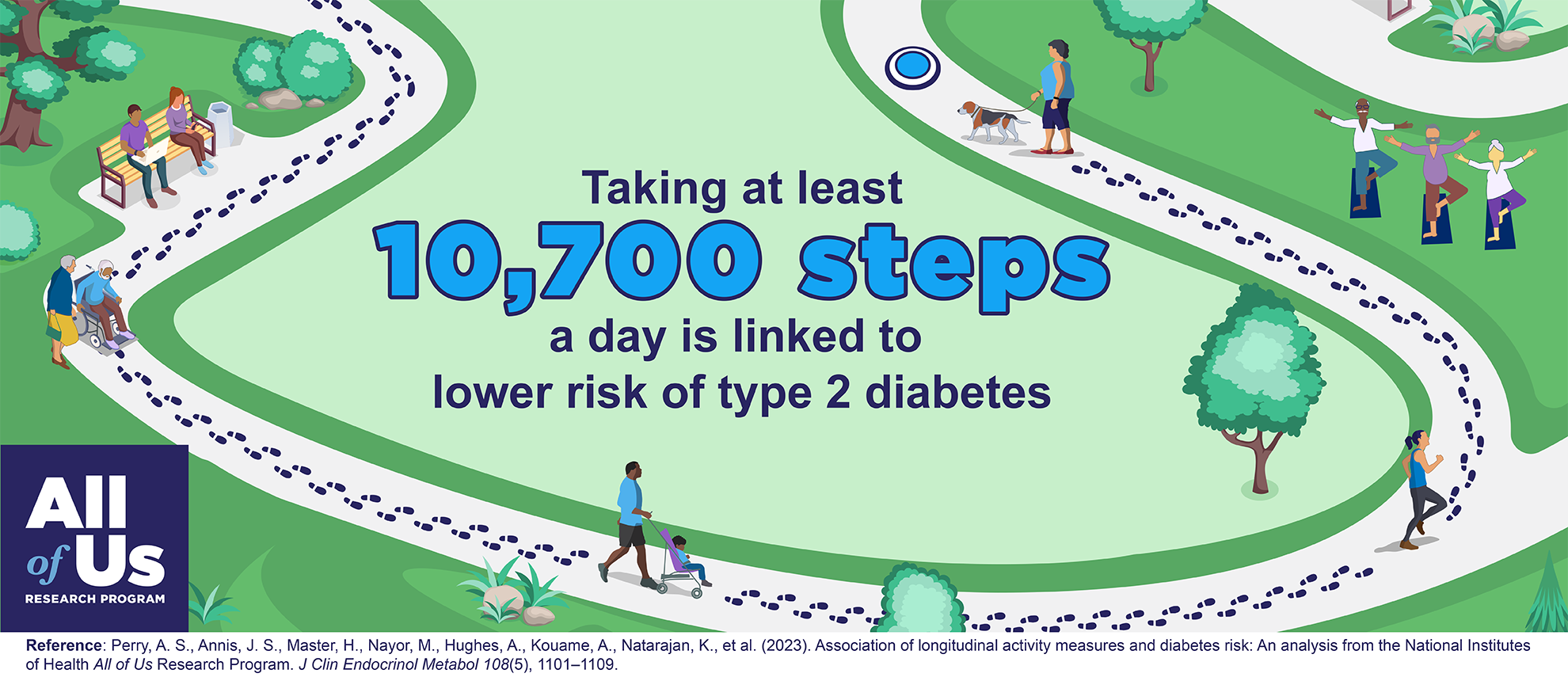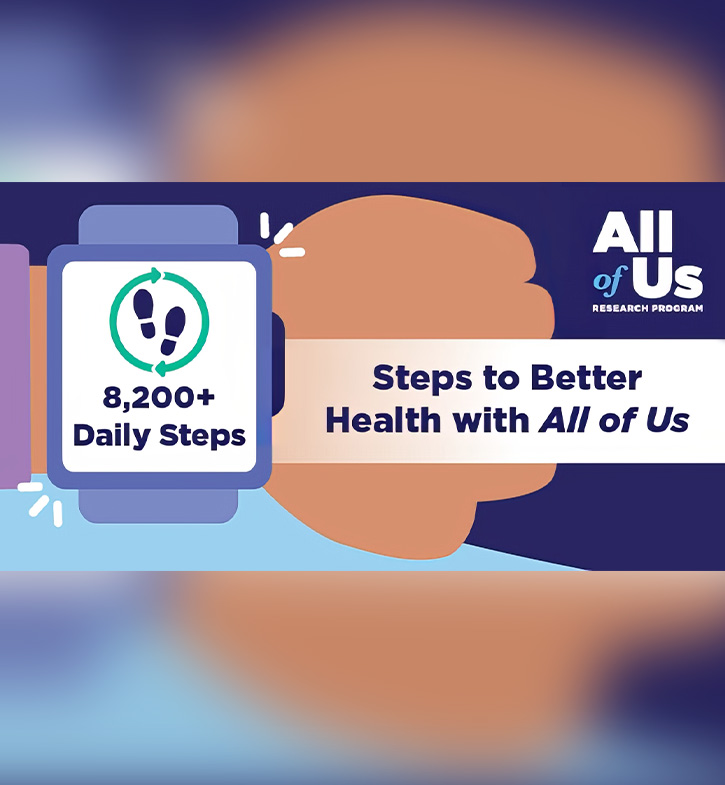
Key points
- Researchers looked at All of Us Fitbit data and type 2 diabetes diagnoses over time.
- Taking at least 10,700 steps a day was linked to a lower risk of type 2 diabetes.
- In this study, most Fitbit data came from participants who were healthy, active White women.
- Having wearables data from a more diverse group of people can help increase what we know about fitness and health.
More than 1 in 3 adults in the United States are at risk for type 2 diabetes. Many do not even know it. We know that moving more and sitting less can help prevent type 2 diabetes. But it is unclear how much activity is needed.
Researchers looked at data from Fitbit devices shared by All of Us participants to learn more. They also counted how many participants developed type 2 diabetes.
Taking at least 10,700 steps every day was linked to a much lower risk of type 2 diabetes than taking about 6,000 steps every day. The study was published in The Journal of Clinical Endocrinology and Metabolism.
Studies like this can lead to more specific exercise recommendations. But the findings from this study may not apply to everyone. That’s because most of the Fitbit data in the All of Us database came from White women.
Connecting Daily Steps and Diabetes Risk
Physical activity is difficult to study. In most studies, physical activity is captured by asking people to remember what they did (called “self-report”) or by tracking their activity on only a single day.
Fitbit devices and other fitness trackers can help improve fitness research because these devices can record real-time activity over several days, months, and even years.
In this study, the researchers looked at data from more than 5,600 All of Us participants who shared their electronic health record (EHR) data and regularly wore a Fitbit device.
The researchers studied differences in physical activity between participants who did and did not develop type 2 diabetes between 2010 and 2021. Participants who took at least 10,700 steps a day were much less likely to develop type 2 diabetes than those who took about 6,000 steps a day.
The connection between 10,700 steps a day and lower risk of type 2 diabetes was the same regardless of the participant’s age, sex at birth, or body type.
Fitness Research Needs More Diversity
This study has some limitations. Most of the participants were White women who were active and healthy. So these findings may not apply to people who have a health condition or have trouble walking.
Fitness research needs more diversity. The All of Us Research Program hopes more participants of different races, genders, ages, and walks of life will choose to share data from their fitness trackers. That way, findings like these can better represent communities across the country.
To address this problem, All of Us started the WEAR Study. WEAR supported the All of Us Research Program by collecting health and behavior data from Fitbit devices. The study reached diverse groups in the United States. These are groups that are often left out of research. The study ended on December 1, 2024.
What’s Next
Fitbit devices do not track all types of physical activity, so it is unclear if certain activities are better at lowering type 2 diabetes risk than others. Also, the researchers did not look at other factors that could affect diabetes risk, like nutrition, environment, income, and education. Future studies could focus on specific physical activities, like walking versus running versus playing pickleball, and consider other risk factors.
Interested in All of Us?
- Read more research highlights.
- Learn about participation in the program.
Conduct research with All of Us
- Learn about opportunities for researchers.
- Find funding to support research using All of Us data.
- See more research projects made possible by All of Us data and tools.


